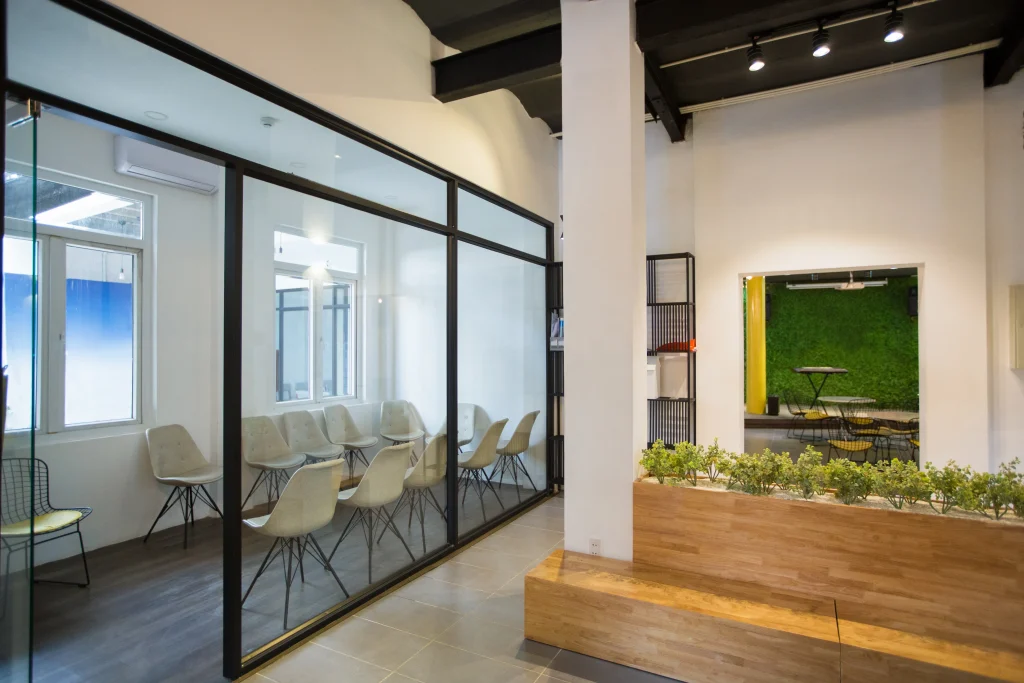
Improve building acoustics in Melbourne with Quick Fit Glass while understanding acoustic glass ratings for superior indoor sound insulation results.
Noise reduction is essential for comfort in homes, offices, and commercial spaces located near busy roads or industrial zones. Quick Fit Glass offers professional glazing solutions that help minimise unwanted noise through high-performance acoustic glass. Understanding acoustic glass ratings, such as Rw and STC, allows property owners to make informed choices for creating quiet and comfortable interiors.
The Purpose of Acoustic Glass Ratings
Acoustic glass ratings determine how effectively a glass panel can reduce sound transmission. The two main measures, Rw (Weighted Sound Reduction Index) and STC (Sound Transmission Class), indicate how well a product resists airborne sound. A higher Rw or STC value means greater sound insulation, reducing the impact of external noise.
According to the Australian Glass and Glazing Association (AGG), acoustic glass combines laminated layers with a specialised interlayer that absorbs sound energy and minimises vibration transfer. This structure enhances both the density and damping characteristics of the glass, improving interior acoustic comfort.
Measuring Rw and STC Values
Rw and STC ratings are determined through precise laboratory tests that measure how effectively glass panels reduce sound across controlled frequencies. The Rw rating, used in Europe and Australia, is expressed in decibels and indicates how much sound is blocked as it passes through the glass. The STC rating, commonly used in the United States, also measures decibel reduction and is often applied in evaluating the acoustic performance of partitions and glazing systems.
Higher ratings indicate superior sound insulation and enhanced indoor comfort. Glass with an Rw or STC value above 40 is typically considered high performance, providing significant noise reduction in demanding environments. Standard 6 millimetre glass may achieve an Rw of around 29, while laminated acoustic glass can exceed Rw 40, effectively minimising noise from traffic, aircraft, and industrial activity.
For verified Australian performance data, see the National Glass Acoustic Technical Information Guide.
Factors That Influence Acoustic Glass Performance
Several factors contribute to the performance of acoustic glass ratings and overall noise control:
• Glass Thickness: Thicker panes increase mass and block more sound.
• Laminated Interlayers: Acoustic interlayers absorb sound waves and minimise vibration.
• Double or Triple Glazing: Multiple panes with air or gas cavities improve insulation.
• Frame Sealing and Installation: Proper sealing and fitting prevent sound leakage through gaps.
Combining these factors ensures consistent sound control across various frequency ranges, enhancing comfort and tranquillity in both residential and commercial spaces.
The Importance of Rw and STC in Modern Building Design
Modern architecture often includes large glass panels and open-plan layouts that require effective noise reduction strategies. Selecting glazing with strong acoustic glass ratings helps meet building code requirements for sound insulation while maintaining aesthetic appeal and energy efficiency.
These ratings are especially valuable in environments such as:
• Urban apartments and office complexes
• Schools and healthcare facilities near transport corridors
• Hotels and retail properties in high-traffic areas
Achieve Superior Acoustic Comfort with Quick Fit Glass
For property owners seeking peaceful interiors and professional glazing performance, we at Quick Fit Glass provide tailored acoustic solutions that balance beauty, strength, and sound insulation. Our team assesses each environment, recommends suitable Rw or STC-rated products, and ensures expert installation for long-term satisfaction.
Contact us today to explore how our acoustic glass solutions can improve comfort, privacy, and noise control in your space.
Related Blog Articles:
Laminated vs Toughened Safety Glass: Which Option is the Best for You
Toughened Safety Glass: Impact Resistance for High-Risk Environment Application

